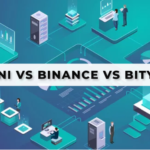key Takeaways:
- BIS report highlights significant challenges for banks using permissionless blockchains
- Integrating permissionless blockchains into traditional banking systems requires careful consideration of evolving risks and robust safeguards.
In its latest working paper, the Bank for International Settlements (BIS) has shed light on the complexities and risks associated with banks engaging with permissionless blockchains.
Unlike permissioned or private blockchains, permissionless blockchains like Bitcoin and Ethereum allow anyone to participate, leading to a unique set of challenges for financial institutions.
The BIS’s primary concern isn’t the public nature of these blockchains, but rather the permissionless aspect, which involves unknown or third-party participants in financial networks.
Banks face substantial challenges when it comes to due diligence and oversight in these environments. Since the participants are not directly controlled or thoroughly vetted by the banks, assessing their reliability, security practices, and potential risks becomes increasingly difficult.
(source)
This lack of direct oversight introduces uncertainty and makes it harder for banks to predict or manage disruptions that might occur if a third party fails or acts maliciously. The BIS points out that this could have significant implications for the stability and security of the global financial system.
The working paper outlines several risks associated with permissionless blockchains, including operational and security risks, governance issues, and legal and compliance challenges.
One major concern is the potential for money laundering and terrorism financing, as the pseudonymous nature of blockchain transactions complicates compliance with anti-money laundering (AML) and combating the financing of terrorism (CFT) regulations.
Additionally, the paper highlights the risks related to settlement finality and the potential for political uncertainty to affect the stability of blockchain networks.
For example, a ban on certain blockchain activities could reduce the computing power or staked native tokens available to secure the network, temporarily increasing the risk of a 51% attack, where a coordinated effort is made to control more than 50% of the validation nodes.
Despite these challenges, the BIS report emphasizes that solutions are being developed to mitigate the risks associated with permissionless blockchains. The working paper suggests several potential mitigations, including business continuity planning, technology-driven transaction controls, and other measures designed to enhance security and compliance.









